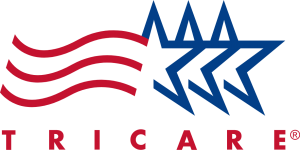The TMS Center of Ventura is honored to support our military families as they face very unique challenges while making significant contributions to the safeguarding of our nation’s security.
We are a proud in- network partner of TRICARE, the health care program for uniformed service members, retirees, and their families around the world. Together with TRICARE, we help active-duty military and veterans’ dependents, spouses and adult children who are at an increased risk of developing major depression.
Depression and Military Families
Depression is a mood disorder marked by a significant and persistent feelings of sadness, hopelessness and loss of interest or pleasure in almost all activities. It also includes other symptoms like changes in appetite or weight, sleep disturbances, feeling slowed down or restless, fatigue, feelings of worthlessness or excessive guilt, trouble concentrating, and recurrent thoughts of death or suicide. A person with depression has these symptoms most days for at least two weeks. It’s not just a case of the blues; it’s a deeper, more enduring state that impairs the body, mind and daily living.
Depression is a significant concern within the U.S. military community, affecting nearly 23% of active-duty military personnel. Factors like prolonged absences from family, combat trauma, and high-stress demands heighten mental health risks. Moreover, depression commonly co-occurs with post-traumatic stress disorder (PTSD), further complicating the treatment and recovery process.
One of the most critical aspects of this issue is that depression can lead to an increased risk of suicide among veterans. In a first-ever report on military family suicides released only in 2019, the Pentagon said that 123 spouses and 63 children took their own lives in 2017 and that of those 186 deaths, 122 were among active-duty personnel families, 29 among Reserve families and 35 of National Guard families.
Psychotherapy and medication are cornerstone treatments for depression, but they may not work for everyone. Because depression often comes with other mental health issues, there’s a constant effort to find broader treatment options to help ease this difficult and complex journey.
In the Service, Living Life to the Fullest.
There’s new hope. Transcranial Magnetic Stimulation or TMS is now healing major depression in many who have tried but not responded adequately to traditional forms of treatment.
TMS uses magnetic pulses to stimulate nerve cells in the specific areas of the brain that are involved in mood control. Repeated stimulation of this region of the brain, which is often underactive in patients with depression, has been clinically proven to produce an enduring antidepressant effect. It is a drug-free, non-invasive, out-patient procedure with no systemic side effects. To find more about TMS, click here.
In addition to TMS, The TMS Center of Ventura leads in adopting cutting-edge treatments such as Intermittent Theta-Burst Stimulation, or TBS. Cleared by the FDA in August 2018, TBS is a quicker and potentially more effective version of TMS that offers more enduring results and better remission rates in treating depression. To find out more about TBS, click here.
These breakthroughs offer new hope to those in search of more choices in their path to healing.
To find out if TMS or TBS is for you, please call or message us. Or, you can submit the short form below for a comprehensive evaluation.


